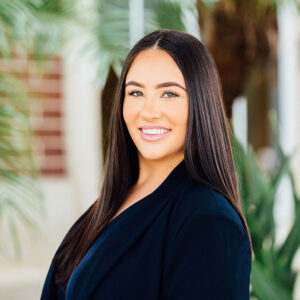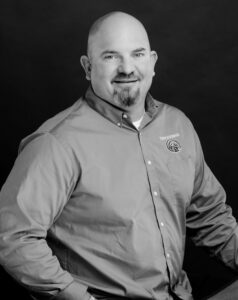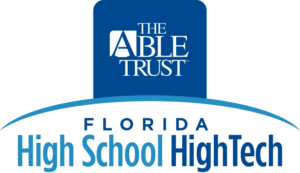Partner Perspectives
Tina Pepin and Jeff Skowronek, MST, Ph.D.
Executive Director, The Pepin Family Foundation /
Executive Director, Pepin Academies


What is the mission and purpose of the Pepin Family Foundation?
PEPIN: As we focus on making an impact that improves the lives in our community today, the goal of the Pepin Family Foundation is to ensure our legacy gives back for many generations to come. This goal is why our work aims to improve the quality of life in Tampa Bay.
Our vision is to encourage the growth and access to specialized disabled learning, the best in cardiac care and research, transportation and mental health and wellness services to all professionals on the front line and their families. As we open our eyes and ears to the community, our family allocates our resources accordingly while staying true to our mission that began many decades ago. We are always looking for ways to serve those who serve. We are the helping hand.
How do Pepin Academies help to prepare students with disabilities for their lives after high school graduation?
SKOWRONEK: Students at Pepin Academies often come to us after unsuccessful experiences in traditional school settings. For us, it is imperative that our end goal for our students is not just academic achievement that ends with a high school diploma. Rather, we believe if students leave us only with a diploma and no plans for a productive future, we have failed them just the same as the failure they experienced prior to enrolling in our schools.
Therefore, we make every effort possible to understand our students’ future desires and help create a path for their success. If post-secondary education is a student’s preference, we offer many opportunities of a traditional school setting to build a strong background. As post-secondary education need not be the path for all students, we have career/workforce experiences and life skills training as an integrated part of our model.
Beyond those courses, we also offer models of real-world experience, such as our Pepin Café, which is a scaled-down version of a coffee, smoothie, and tea café. Within these experiences students learn the skills of various trades, some earning industry certifications, and valuable preparation for future employment.
Whether a student’s path is post-secondary education, workforce, or our career/workforce education transition program, we aim to ensure students at Pepin Academies are afforded options and experiences that will maximize their potential and contribute to their developing into a productive member of society after they leave our schools.
What sparked the decision to make educating youth with disabilities a primary focus for the Pepin Family Foundation?
PEPIN: Brought to the attention of my grandfather Art and father Tom, a family friend’s son diagnosed with autism and a few family members were struggling in a general education environment. We saw and acted on the need that in order for a student to thrive while learning, they must first feel like they belong and are supported on all levels. Through our education model, our “special sauce” as we say, our students are able to receive all they need between the healing walls of Pepin Academies.
We also learned that for this community, the work must continue after a high school diploma, which fostered the creation of our transition and workforce readiness program. Just like The Able Trust, we believe in and support inclusivity in our community and workforce!
What future-of-work trends are Pepin Academies seeing that will be important for students?
SKOWRONEK: To ensure our programs are in line with workforce demands, we regularly examine the labor force characteristics for persons with disabilities. We then compare those with our students’ interests to create a well-balanced offering of career-related experiences.
Of equal importance, “soft skills” continue to be important components of successful employees. At Pepin Academies, our workforce and life skills training integrate these essential features of work ethic/commitment, problem-solving, time-management, collaboration, and social-emotional intelligence, into real-world, hands-on experiences. Having these skills helps to increase the likelihood that our graduates will be seen as valuable, important additions to any field, and as full-time committed employees rather than continuing the trend that persons with disabilities tend be part-time employees.
Lastly, while our Transition program certainly focuses on providing our students valuable career-related skills, it also serves to break down barriers to a disability-inclusive workforce. By working with community partners in a more scaffolded setting, companies can navigate how to accommodate the needs of all individuals and maximize workplace productivity in a safe, supportive model.
Independent of the direction the labor force takes by way of types of employment, it is crucial that future employees present with a well-rounded background, complete with the soft skills that are predictive of collaborative, committed, long-term employee, and future employers are afforded an opportunity to learn how to be more inclusive in a safe, supportive partnership prior to hiring an employee with disabilities full-time. At Pepin Academies, our career and workforce education programs meet those goals.
Learn More about
The Able Trust
Youth Programs
High School High Tech (HSHT) provides high school students with all types of disabilities the opportunity to explore jobs or postsecondary education leading to in-demand careers. HSHT links youth to a broad range of academic, career development and experiential resources and experiences that will enable them to meet the demands of the 21st century workforce.
Futures in Focus is intended to support students from grades 9 to 12 (aged 14-22) who have a disability documented by an IEP or 504 Plan.
- Improve participation in education and vocational-related activities leading to increased employment opportunities for middle/high school students with disabilities.
- Connect students to resources that assist them with education and employment pursuits, such as Florida’s Division of Vocational Rehabilitation.
- Increase enrollment in postsecondary education/training.
